The 36-year-old Marianne Power felt frustrated with life. She had a rewarding job and a lifestyle many could only dream of, yet, she was still tormented by misery and uneasiness. Eventually, her despair became the starting point of her journey for self-improvement. Piling up motivational books and working on her shortcomings for 16 months, Marianne wanted to see whether she could make a difference in her life.
She wished to challenge her limits, risked losing her relationships, and uncovered facts about herself. To accomplish this, she accepted being rejected, followed specific schedules, gave a thought to guardian angels, and even attended her own funeral.
This summary of Help Me! reveals what her journey taught her and what kind of impact it had on Marianne’s life.
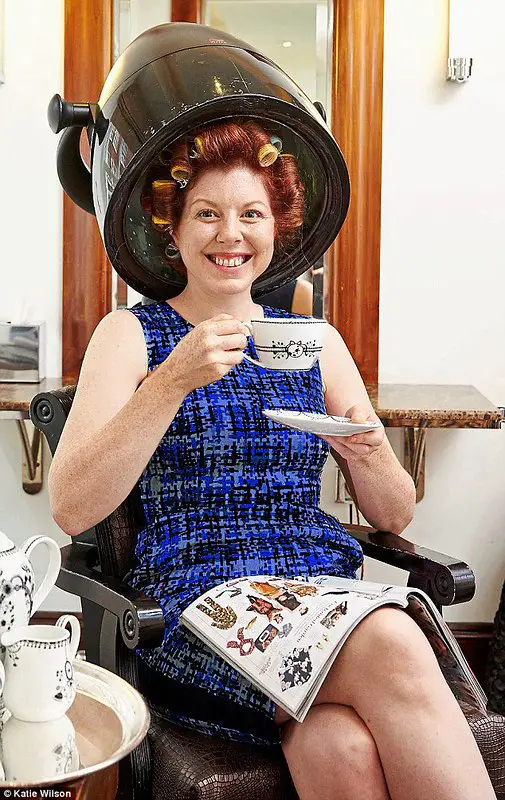
Chapter 1 – Marianne’s journey to perfection started with an awful hangover.
Have you ever stood back for a minute, and observed a situation only to feel an urge to make a change? Perhaps your manager requested something impossible which resulted in your resignation from the job you disliked? Or encountered someone out of nowhere and found a motivation to move forward and turn a new page in your life?
Everyone has a “milestone” moment in life. Marianne found hers on an agonizing Sunday morning after waking up with a hangover.
A horrible migraine combined with nausea triggered uneasiness and an intensified sense of failure within Marianne. She was lucky enough to live a luxurious life as a freelance writer in London, yet there she was, struggling to feel happy.

People surrounding Marianne seemed to have no problem advancing in life. Her friends were finding their lifetime partners, having children, and buying houses. Having none of these, along with no plans for the future, Marianne felt as if she came to a dead-end.
What is worse, it was not a new feeling.
More than a decade ago, she was feeling depressed because of her job. It was then that she started relying on a self-help book for advice, and she was astounded by what she read. She finally gained enough confidence to resign from her job and start afresh, this time as a journalist. With that small step, Marianne became obsessed with self-help. Any book which provided some kind of opportunity was enough for her to start reading.
Yet, all of these were in vain. Regardless of her attempts at self-help, Marianne did not experience any financial improvements. She did not meet the man of her dreams. Her career was rewarding, but her success was only a result of her being driven with fear.
On that specific Sunday, the hungover Marianne suddenly came to two different realizations.
First, despite engaging in numerous self-help books, she hadn’t pursued any of their advice. So that was why her life stayed the same, she mused. The second realization followed quickly: she had to stop reading and start acting. If she started taking action, she wouldn’t have unhappiness in her life, even her flaws would vanish!
Thus started Marianne reading only one motivational book a month. She would actualize what she learned.
Chapter 2 – Challenging your fears might be insightful, but sometimes it is better to leave them as they are.
The book that kickstarted Marianne’s journey for perfection was Feel the Fear by Susan Jeffers, which was also what motivated her to change her career a decade ago.
Jeffers’ advocated that one had to overcome their fears in order to feel happy and accomplished in life. Fear is the natural outcome of a threatened comfort zone. So it is only natural that advancing in life requires one to challenge and overcome that fear.
However, not every kind of fear needs to be challenged, Marianne learned.
What better way is there than jumping into a pool full of ice during the new year’s celebrations? Probably there are much safer options that come to mind. Still, Marianne wanted to challenge this fear of cold and swam on a cold winter day and dived into the pool.
As soon as she dived in, she was sure that she was going to die. But she soon her tremors began to calm down as her body started adjusting to the temperature of the water. The relief then turned into excitement. She experienced the anxiety, yet still dived in to face her fear. She was confident that she could achieve anything after this!
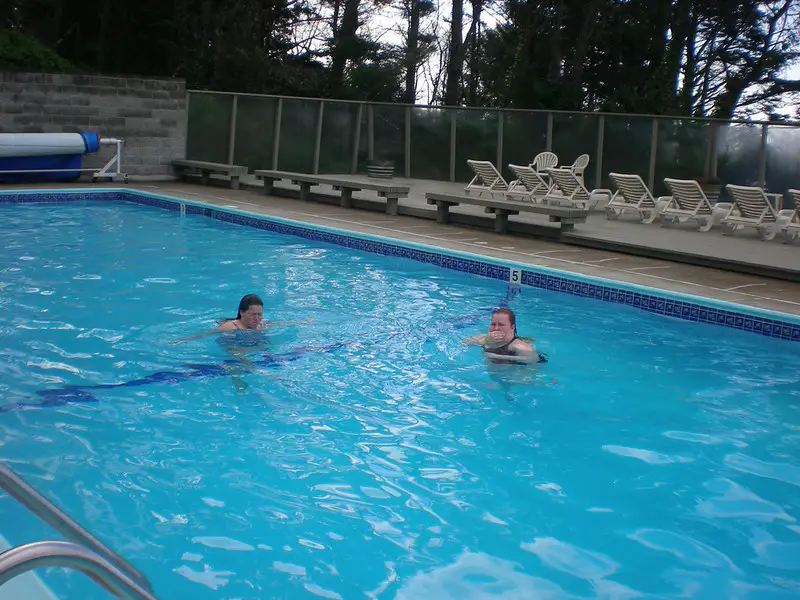
Marianne spent the following month challenging and overcoming her fears, no matter how trivial or scary they were. She engaged in dialogues with random people on public transport, parallel parked after a long time since taking the driving test. She got an award for her public speaking and even performed as a stand-up comedian.
All the achievements helped to boost Marianne’s confidence and she began to feel the joys of living. She realized that she had been underestimating herself and imagined how her life would go on if she never returned to her comfort zone.
However, she soon understood that it was not necessary to challenge every fear to feel successful.
When she skydived from a plane at the speed of 150 mph, she realized that her being afraid of heights wasn’t irrational at all. The same thing applied to other fears based on physical boundaries. Those were what kept her safe and they didn’t pose any threat to her progress in life. She wouldn’t accomplish anything even if she challenged them.
What she had to do was to concentrate on her habits which hindered her self-improvement, like spending money too freely. So, she decided to start focusing on just that.
Chapter 3 – Marianne’s bad spending habits were caused by insecurity and a childhood full of extremes.
Some people simply can’t be trusted with money. They spend it the moment they receive it and seem to be unable to understand how it ran out so quickly. So, they end up in debt and their last resort is to borrow from other people.
Probably everyone has a friend like this. Or on the contrary, you might be that friend who, like Marianne, qualifies for the list above! “I wasted all my money,” she says. She was unaware of her bank balance until she failed to make a purchase, that was when she knew she ended up spending all her money.
She read Money, A Love Story by Kate Northrup to improve her financial situation. And she realized that there were other things that she had to pay attention to, aside from her bank balance.
As the book suggested, she listed her memories and experiences about money. It took her 2 hours of writing to discover that her childhood was a big factor in her spending habits.
During her childhood, her family-owned fancy cars and they didn’t need to bother with saving money. But their wealth vanished by the time she became twenty. Although they were no longer wealthy, the guilt of its advantage stuck with Marianne. So, she tried to solve the issue by treating her friends with drinks and meals. The fact that her family lost their wealth made her realize how easy it was to lose a large amount of money in a short time. She avoided being attached to wealth and decided to stop caring so much about planning or spending.
Yet her childhood only constituted a part of the problem. She discovered while exploring her bank statements that she had a serious debt of $19,000. Tears began to form when she realized that she threw away her money for luxurious coffee and beauty treatments. She wondered why she was the only one with monetary issues like this.
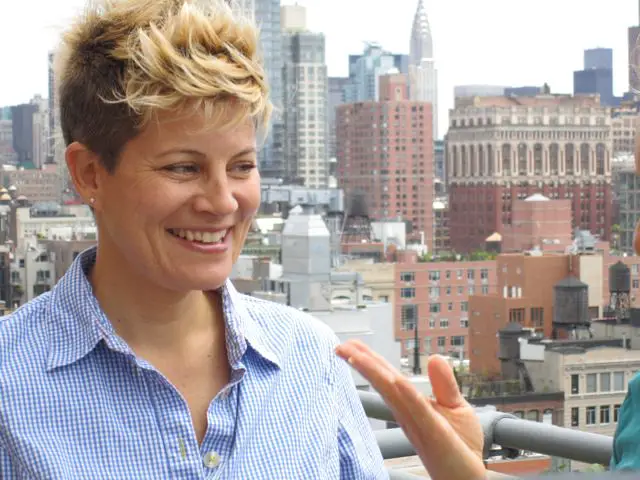
Then, Marianne had a light-bulb moment: she wasted her money to feel good about herself. She treated her friends because she desperately wanted them to like her. Her bad spending habits stemmed from her low self-esteem.
Marianne was aware that solving her money issues would take a long time. Still, she kept following what the book advised. She organized her finances, kept track of her balance and things she spent money on, and overall became more thankful for money.
Though, her commitment didn’t last very long.
Chapter 4 – Marianne started reconsidering her dream life after “The Secret”, but she sabotaged her financial habits in the meantime.
After confronting the unfortunate roots of her spending habits, Marianne started a new book with an entirely different approach.
Marianne learned the law of attraction and positive thinking can help people reach their goals in life after reading The Secret by Rhonda Byrne. At first, she was extremely skeptical about this; she was pretty sure it was not real. But she had heard from many people that this book changed lives. And she wanted to believe what she heard.
Her problems didn’t change, but she gained valuable knowledge from this book in some ways. In others, it didn’t affect her much.
A waitress who had read the book before suggested that Marianne make her own vision board, which is a poster-like paper where her ideal life was represented. Marianne stopped being skeptical for a moment and decided to try.
Her first image of a perfect life involved a mansion in Los Angeles, which came as a shock to her housemate. It was not like Marianne at all. Marianne herself was also wondering why she thought she would be happy with money and a luxurious life.

So, she searched for a new vision, one that would suit her better. In her ideal life, she imagined herself as healthy and content, practicing yoga and meditating. It also involved a partner, friends that liked her, and the freedom to travel around the world.
She now had the full image of how her perfect life would be like. Yet, she was still cynical about the validity of The Secret. Marianne didn’t believe that she could achieve her perfect life through positive thinking alone. But then, just four days after she created her vision board with images of healthy juices and yoga poses, she was requested to write about kale and yoga by her editor. Even if this was a coincide, she wanted to believe that it was a sign.
If by any chance The Secret worked, Marianne wanted to use this opportunity to get help with her finances. Thus, she started imagining having a sufficient amount of money in her life. She was hoping to get the check she put on the visual board, which was worth $120,000. She started imagining the amount of money she desired in her bank account.
Yet after a week of committing herself to spend money carefully, Marianne lost track of her finances. Her freelance work was faltering as well.
Chapter 5 – Marianne experienced self-doubt after a family tragedy but seeking rejection resulted in great accomplishments.
Do you remember the last time you actively sought rejection from others? Chances are, you never even thought about such a thing. You probably wonder who in their right mind would go around seeking rejection.
But Rejection Therapy suggests that if you begin to look for rejection, you eventually overcome your fear of it as a result. It simply ceases to be a scary thing to avoid. And then, you start being more motivated to take risks or try new things.
Keeping this in mind, Marianne intended to face one rejection per day. But just when she was getting ready for a potentially terrible rejection, something interrupted her journey.
Marianne heard the tragic news of her uncle’s passing when she was getting ready to audition for a talent show. She immediately bought place tickets to Ireland to attend his funeral, throwing away any thoughts about the talent show.
Mourning her uncle and listening to people’s stories about her uncle’s kindness, Marianne started to see her self-help path as pointless. She began to think that it would be better to stop aiming for perfection. Simply being nice and thankful for the things she has in her life would benefit her more, she thought. So, Marianne took a break from her rejection seeking after the funeral. She returned to her old daily life which revolved around sleeping, working, and watching TV.

Only a few weeks later, she saw a quote: “Comfort is highly overrated for individuals who want to progress in life.” And with that, she once again took up to seeking rejection.
But rejection wasn’t the only thing she received. Along the way, she was blessed with some yeses as well. She got permission from a musician to play his instrument, and she was welcomed into a dialogue with some people. She discovered that she lived in a world full of possibilities with these experiences. Except, as her sister pointed out, Marianne’s attempts at handling rejection were limited to things that didn’t affect her life much.
Marianne didn’t want to admit it but deep down she knew her sister was right. So she decided to set the difficulty bar higher. She wrote articles on topics she wanted to write and submitted them for publication and approached a man she’d been a fan of in a café.
What happened afterward was quite unexpected. Her submission was successful enough to become a weekly column. The man she admired? He asked to go on a date on the day they met. Her successful attempts at rejection helped Marianne understand that she had been scared to go out of her comfort zone in many areas before.
Chapter 6 – A profound epiphany arose after an Italian retreat, but it resulted in the loss of her important relationships
After her challenge of handling rejection and having solid proof that she succeeded, Marianne felt ready to dive into John Parkin’s style of self-help. His book F**k It! aims to save people from becoming obsessed with small things. Being relaxed about the flow of life is the ultimate key to an easier life, Parkin says.
Marianne was a worrier, so becoming able to say “fuck it” to everything seemed like a great chance to her. Another great chance was attending the author’s week-long retreat in Italy.
It turned out that this experience provided more than just an excuse to let loose and have fun.
The exercises during the trip triggered epiphanies about the way Marianne had spent her life.
One of the exercises required taking a breath and letting go while another person watched, yet she was unable to relax. Lying stiff, Marianne realized that this uncomfortable feeling had been with her until now. She’d been so afraid to let go that she hadn’t given herself a break. She’d felt as if a terrible thing would happen if she took a break for once.
Another exercise involved a pool of warm water. People were supposed to float in the water while trusting their partners to support them. This exercise was wonderful, Marianne thought. She felt amazed by the ability to trust another person entirely. She understood how she had never felt such a trust towards anybody in her life; she was always afraid of being hurt.

The retreat helped Marianne to understand her inner world more—she felt such a connection within herself that, after returning to London, she ended up crying at the beauty of squirrels!
But there remained other things to confront. So far, each book Marianne read suggested cutting contact with negative people. So much so that it seemed as if these books were mocking her journey for a while. But when a close friend implied that she was becoming full of herself, Marianne decided to follow her books and to avoid her friend.
Marianne accepted John Parkin’s philosophy in its entirety. Her attitude towards negative friends and doing things she didn’t like was “fuck it!”. She even disregarded her work assignments.
Chapter 7 – Marianne’s motivation after the Tony Robbins seminar did not last long –then she experienced the harsh reality of being broke.
Marianne might have cut contact with a friend during her journey, but she also made new friends who were self-help junkies just like her. Those people helped her with her new destination: Tony Robbins.
His book Awaken the Giant Within emphasizes the importance of getting our minds and bodies in the correct form to achieve things we desire. But Marianne decided not to read 500 pages but to spend around $600 to attend his seminar instead.
The investment was worth it, at least for a while.
The seminar lasted four days and had 7,000 attendees, Marianne included. During the four days, they spend time identifying their desires and unleashing their energy. Best of all, they understood that they had the power within themselves to do anything, even including walking barefoot across hot coals. And so did they on the last day.
Stepping on hot coals was shockingly easy, so much so that it left them almost unimpressed. Marianne was feeling like a brand-new person after the seminar—a person who could achieve anything she desired, including her ideal life. The only thing she had to do was to follow Tony’s 10-day challenge, which included taking freezing baths and keeping an eye on her urinary pH levels.
But Marianne lost her energy after the first half of the challenge. Just a few weeks later, she was struck by a realization which brought her 10-day challenges to a halt.

Since her self-help book about spending, which she had finished five months ago, Marianne had not checked her financial status. Her payments were overdue and about $4,000 was overdrawn from her account! It dawned upon her that while on her journey to the ideal life, Marianne had completely forgotten about her bills and her work.
What came to her mind first was to get in touch with an online group for debtors and a debt charity. But it quickly dawned upon her that her spending habits were not a disease. She was fully capable of overcoming this.
Marianne gave herself a break from self-help and returned to work. She submitted numerous article pitches and worked non-stop for a month. By the end of that month, her debt became more manageable. Dedicating herself to her work made Marianne feel a sense of appreciation towards her work and her own capability to manage her finances.
Chapter 8 – After becoming frustrated with self-help, Marianne was encouraged to pay attention to other things.
Moving forward after stumbling upon a hindrance is not easy. So, Marianne started to doubt whether she wanted to continue her journey or not after seeing her finances collapse. But she didn’t want to go back to the real world, either.
A call from her editor showed her a new path to continue. Her editor requested Marianne write about the increasingly popular angel therapy—the practice of praying to guardian angels for guidance.
The idea of the paycheck made Marianne buy Doreen Virtue’s books on angel therapy and the additional “angel cards”. She began to explore the phenomenon, but they failed to impress her.
Despite finishing up more than eight books at that moment, Marianne couldn’t bring herself to internalize angel therapy. The sheer thought of talking to angels was too weird for her. She stopped investigating and felt frustrated for even giving it a chance—she started to regret involving herself in self-help as well. Ultimately, the whole self-help journey didn’t help her, on the contrary, it seemed to be making her sick.
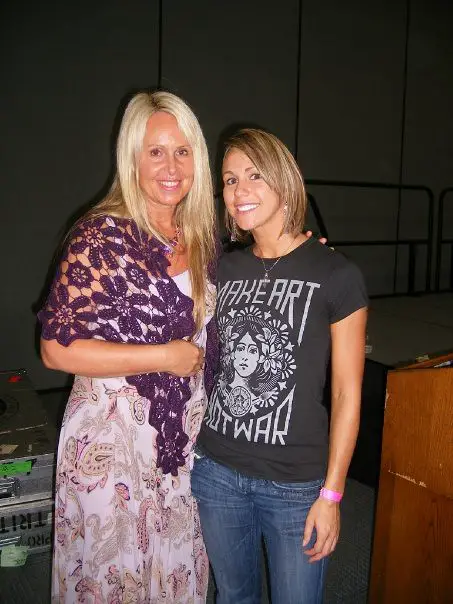
It was a natural for Marianne to start getting ill when she felt run-down, and during her tenth month of self-improvement adventure, her symptoms began to show up. All the contemplations she did was starting to affect her negatively.
Marianne couldn’t see this as a simple physical deterioration. She referred to self-improvement gurus to find a psychological reason behind her health issues. If not for the efforts of her mother and an elderly neighbor, she wouldn’t be able to understand how irrational her efforts had been.
Marianne felt irritated when her mother proposed that her self-help journey had turned her into a self-centered person. Her mother thought if Marianne paid more attention to other people, she wouldn’t be obsessed with herself.
While she was feeling pleased with herself after clearing the leaves from her 85-year-old neighbor’s entrance, Marianne started to contemplate about her mother’s words. She was happy to have helped someone. Both her mother and the neighbor loved to support others and they seemed to be pleased with their lives. Perhaps she, too, would achieve her ideal happy life if she put others before herself.
Chapter 9 – Envisioning her own funeral resulted in a breakdown—which ultimately paved the way for her success.
Have you ever envisioned how your funeral would be like? Perhaps you wondered about the dress you would be in, or how crowded it would be. Or maybe, you’ve thought about what the attendees say about you.
In order to be selfless, Marianne had to complete an exercise that was too morbid for her. She was pursuing the advice written in Stephen Covey’s The 7 Habits of Highly Effective People. The book advocated that feeling content was the result of being nice to others.
Imagining your funeral is probably an upsetting experience for many, but it was overwhelmingly crushing for Marianne.
In her imagination, only a few people came to say their final goodbyes. Most depressing of all, she imagined that she had committed suicide at 42. This unsettling thought, along with the stress about how to live her remaining years, ended up in a one-month-long depressive episode.
Marianne’s sister noticed that something was wrong. So, she suggested Marianne pay a visit to a close friend, Gemma, who lived in Ireland. Marianne took a trip to Ireland. But she spent her time there lying in the mattress for three days straight. The only noise in her room was from the TV. Gemma took it upon herself to go and visit Marianne. They took a nice, long walk, and only then was Marianne able to talk about her depression.

Marianne didn’t want to seek medical help, Gemma thought. She resolved to move forward through her own efforts for a little while. Still, being with her close friend motivated Marianne to become happier.
Unexpected as it is, the next step to overcome her depression was talking with a stranger.
We all have started intimate conversations with the cab driver on the way to our destination. Still, Marianne was shocked to see that her driver could empathize with her situation when she talked about how her self-help journey ended in depression. The bald cab driver shared his story with Marianne—and the similarities made her feel better about herself. His story helped Marianne realize that what she actually desired was the liberty to exist without feeling afraid or anxious.
Chapter 10 – Marianne realized the roots of her battle against flaws thanks to a therapist and a German spiritual teacher.
Have you ever set your resolutions for the new year, only to realize that you haven’t stuck to any of them afterward?
It may discourage some. But most of us just shrug it off, re-evaluate our situation and aim to find ways to become better. Marianne was the same. After she began the new year without her ideal life she struggled to achieve, she turned to a therapist.
Marianne felt relieved after her conversation with the therapist. The therapist told her that it was completely natural to have a breakdown after contemplating alone for such a long time. She felt reassured that her feelings were normal with the help of one session, she also found her new book, which brought light to everything.
Reading Eckhart Tolle’s The Power of Now, Marianne felt that his words were the truth.
The book showed her that she had been underestimating herself. In fact, she discovered that these uncomfortable thoughts started to become her comfort zone. Thus, she developed the tendency to act in a way that would confirm that she wasn’t good enough.
In her journey to become her best self, her future became the priority while her present was constantly thrown aside, Marianne realized. This was the most beneficent realization she discovered while reading The Power of Now.
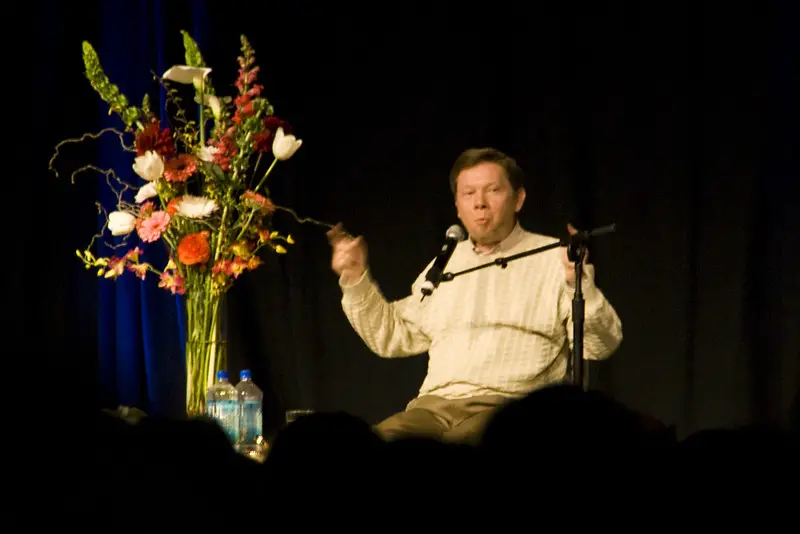
It dawned upon her that she had been doing this her whole life. Marianne was so focused on achieving her goal of happiness that she didn’t take time to appreciate her efforts, no matter how small they were. She was obsessed with her ideal life and blamed herself whenever she faced a failure.
After internalizing this, Marianne began to think about the good aspects of her “now”. The world was beautiful. She was physically fit. She had a loving circle of friends and family.
Just a month after her breakdown, Marianne felt a comfort she’d never experienced before. Finally, her self-help journey brought the peace she’d longed for. The only question left, which her friends and family asked constantly was when she would meet the love of her life.
Chapter 11 – An awkward date uncovered the reason why Marianne struggled to bond with people.
Marianne decided to improve herself in terms of romantic relationships as well, and she found it surprising that she was quite comfortable with approaching men. Challenging her fears and looking for rejection solved the issue for her. So, the only thing to do was to meet a man, right?
Wrong.
Marianne gave chance to several dates, one of which was with a man she was truly interested in. He seemed to be like her as well. Yet, just as they were about to kiss, Marianne was overcome with the urge to back off. And she did. Then she had a realization: her problem wasn’t about not finding the right guy.
She dived deeper into the issue and realized that what hindered her from getting in a romantic relationship was the way she felt about herself: she believed that she was unlovable. She had finally admitted this after quite a long time to herself. Then, she discovered Daring Greatly, by Brené Brown. Brown’s ideas completely described Marianne’s painful feelings. The key feeling was shame—it made Marianne believe that she was unworthy of being loved and belonging somewhere. It was shame that triggered Marianne’s destructive behavior.
In Brown’s words, people chose to opt for the impossible goal of perfection when they feel ashamed. Then, they seek refuge in substances, bad choices, mindless television, or anything to numb their shame when they fail to become flawless. Such a solution is often futile, and they resort to isolating themselves from others as a result.
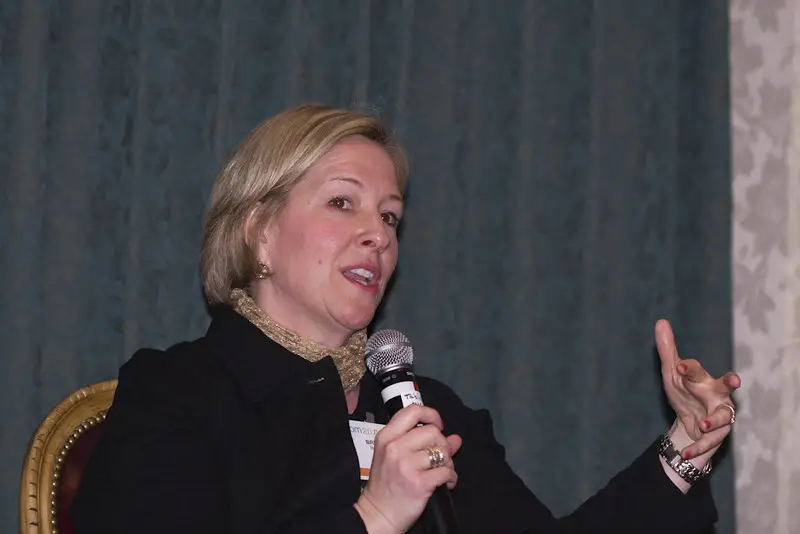
Marianne ticked all the boxes, including severing her bonds with people. And ironically, she had to bond with more people to solve this issue. Sharing how she felt with a person who would understand her was the only way she could overcome her shame.
It made sense to Marianne. She had been focusing on herself for self-help when in reality all she needed to do was to reach out to other people.
Marianne stuck to Brené Brown’s philosophy and started to heal broken friendships. She finally ended her self-help adventure with Louise Hay’s You Can Heal Your Life. Hay advocates that loving oneself is the key to improve other aspects of life. While Marianne read this suggestion, she realized that she was finally able to cherish herself for who she was. On her journey to correct anything that was wrong with her and her life, Marianne had completed insane challenges. She was strong, she was alive, and she was done trying to fix what was not wrong.
Help Me!: One Woman’s Quest to Find Out if Self-Help Really Can Change Her Life by Marianne Power Book Review
On her quest for perfection, Marianne found out the truths about herself, her connections with people, and her approach to life. The happiness she sought was not something to be found on a self-help book or in insane challenges. In order to achieve her ideal, all she had to do was to look at her past self, what she saw as her flaws, and share meaningful bonds with people in her life.
